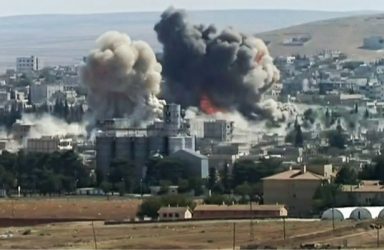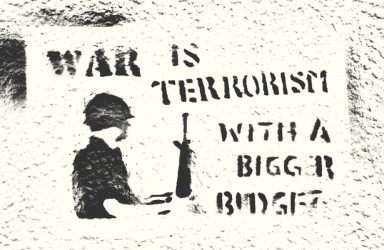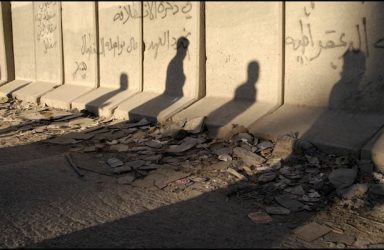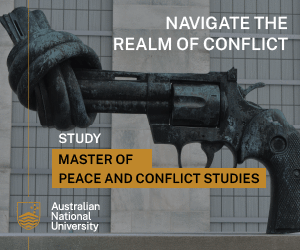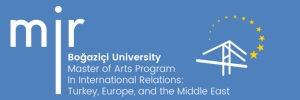Dying to Bomb: An Interactive Triangular Approach to Suicide Terrorism
Suicide terrorism can only be found in an interactive triangular framework involving organisation, individual and society.
False Victimisation Narratives: Female Suicide Bombers of the Developing World
The dominant discourse surrounding female suicide bombers is discursive and reductive. It silences the diversity of motivations associated with female participation.
Are Arab Nationalism and Islamism Two Sides of the Same Coin?
Arab nationalism & Islamism, intertwined from birth, grew out of a shared anti-Western identity but the contents & meanings of this rejection are fundamentally different.
Applying Jus Ad Bellum in Cyberspace
Existing law governing jus ad bellum does not satisfactorily address the unique characteristics of cyber attacks.
Critical Terrorism Studies – A Case of Overemphasising the Discursive?
Evaluations of the two commitments of Critical Terrorism Studies – acting as a normative tool on one hand and an analytical tool on the other – has to be done separately.
US-China Relations in Cyberspace: The Benefits and Limits of a Realist Analysis
Offensive realism provides a useful framework for considering the national security rivalry in cyberspace and illuminates the current security competition.
The Fateful 52: How the American Media Sensationalized the Iran Hostage Crisis
The US media’s generalization of the Iran hostage crisis through a liberal, secular, Western democracy lens marred Iran’s image and influenced US responses to the crisis.
Excluded: The Sense of Non-Belonging and Violent Radicalisation in the UK
Alienation of British Muslims through policies, society, domestic life and non-inclusive Mosques are presented as contributory factors in cases of violent radicalisation.
How Can We Explain the Existence of Al-Qaeda?
The emergence of Al-Qaeda is influenced by structural factors, but it cannot operate effectively in the longer term without its principle resource – its human capital.
The Impact of Gush Emunim on the Social and Political Fabric of Israeli Society
While Gush Emunim may no longer exist as a movement, its ideologies remain and continue to have a severe and negative impact on Israeli society.
